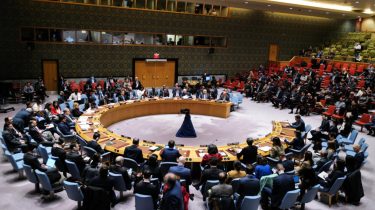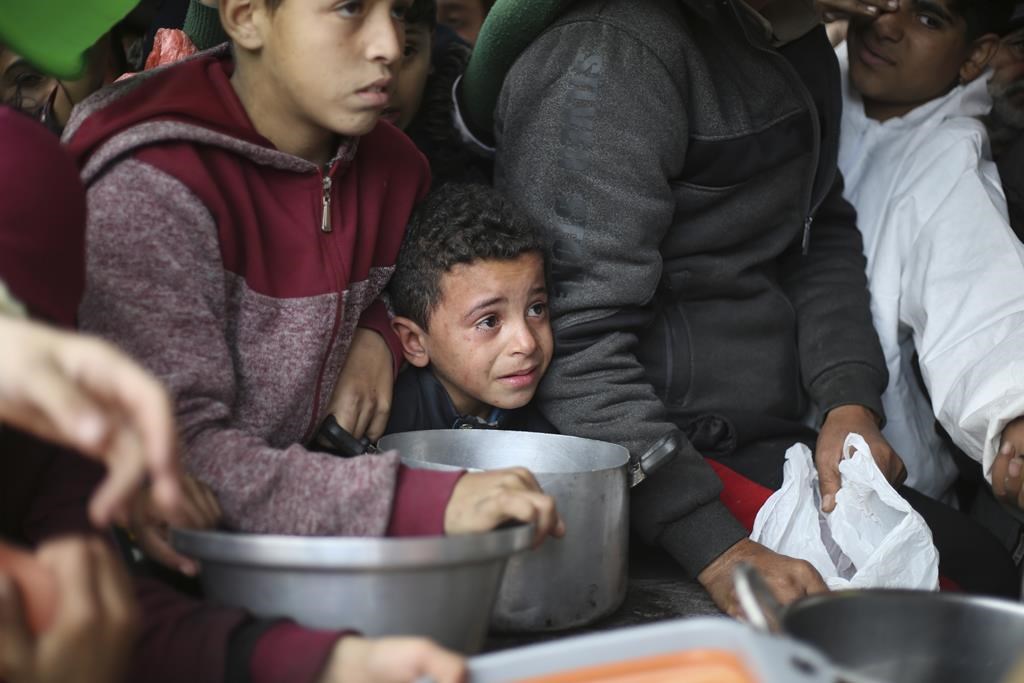UN Security Council to discuss mass famine in Gaza Strip

Since the outbreak of hostilities following the Hamas attack on Israel on October 7 last year, the UN has repeatedly raised concerns about the possible negative impact of the conflict on food security in the Gaza Strip.
This is especially important to consider in light of the high level of poverty among the population resulting from the 16-year blockade. This was stated by the UN Deputy Emergency Relief Coordinator, speaking at a meeting of the Security Council.
Last December, it was predicted that all 2.2 million Gazans would experience acute shortages of food by February 2024
Potential disaster: all possibilities for escalation of the situation
At the end of February, Ramesh Rajasingham highlighted the crisis situation in Gaza, where some 576,000 people are teetering on the edge of famine, with one in six children affected. in the northern part. He noted that humanitarian aid remains the only source of survival, but its delivery faces obstacles.
According to Ramesh Rajasingham, the efforts of the UN and its partners continue to be hampered by various obstacles, such as closed checkpoints, stringent limitations on mobility, denial of access, complex screening procedures, communication restrictions, as well as damaged roads and unexploded bombs. ammunition. The situation became even worse after the UN Agency for Palestine Refugees in the Near East (UNRWA) stopped funding.

Approximately 1.7 million individuals reside in shelters managed by UNRWA, constituting over three-quarters of Gaza’s populace.The agency’s head told the General Assembly last week that its activities in the region would be significantly limited starting in March.
“There is little room for action at this time as hostilities continue and risk spreading to the overpopulated areas of southern Gaza,” said Ramesh Rajasingham. “We are therefore
urging for a cessation of hostilities.Without intervention, we are concerned that mass famine in Gaza will become virtually inevitable.”
FAO warns: Gaza’s food infrastructure is on the verge of collapse
Maurizio Martina, FAO Deputy Director-General, presented a grim picture of the devastation in Gaza, from the loss of the fishing industry, which sustained over 100,000 livelihoods local residents to the loss of livestock due to airstrikes and lack of water and feed. By February 15, 46.2 percent of arable land was assessed as damaged, with agricultural infrastructure and farms destroyed. More than a quarter of wells and 339 hectares of greenhouse cultivation were devastated. The fighting has also negatively impacted the olive and citrus harvests, which are a key source of income for Gazans. Martina called for a halting hostilities and reinstating humanitarian access for aid provision. He stressed the need to restore secure and reliable humanitarian entry and infrastructure, such as water pipes, telecommunications and electricity, throughout the Gaza Strip.

Palestinians line up for free food distribution during the ongoing Israeli air and ground offensive in Khan Younis, Gaza Strip, Friday, Feb. 2, 2024. (AP Photo/Hatem Ali)
WFP: Famine warning for more than 500,000 people
World Food Program (WFP) Deputy Executive Director Karl Skau warns of a real threat of famine that could hit the sector by May this year. According to him, at least half a million individuals face jeopardy. Presently, nearly the entire populace of Gaza, amounting to 2.2 million individuals, requires food assistance. “We are faced with extremely high levels of child malnutrition in Gaza,” Skau stresses. The deputy head of the WFP notes that the organization is ready to quickly expand and increase the volume of its humanitarian operations once a ceasefire agreement is reached.
According to Skau, preventing famine in northern Gaza requires safe working conditions for humanitarian workers, the opening of the port of Ashdod and the Karni checkpoint, an effective warning system for the delivery of humanitarian aid and a stable communications network. He noted that WFP and other UN humanitarian organizations are
incapable of delivering consistent and ample nourishment supplies to those who need it. Skau stressed the importance of restoring essential services like healthcare, electricity, water and sanitation to prevent famine, noting that UNRWA is currently the only organization capable of supervising and overseeing this vital infrastructure in Gaza.
